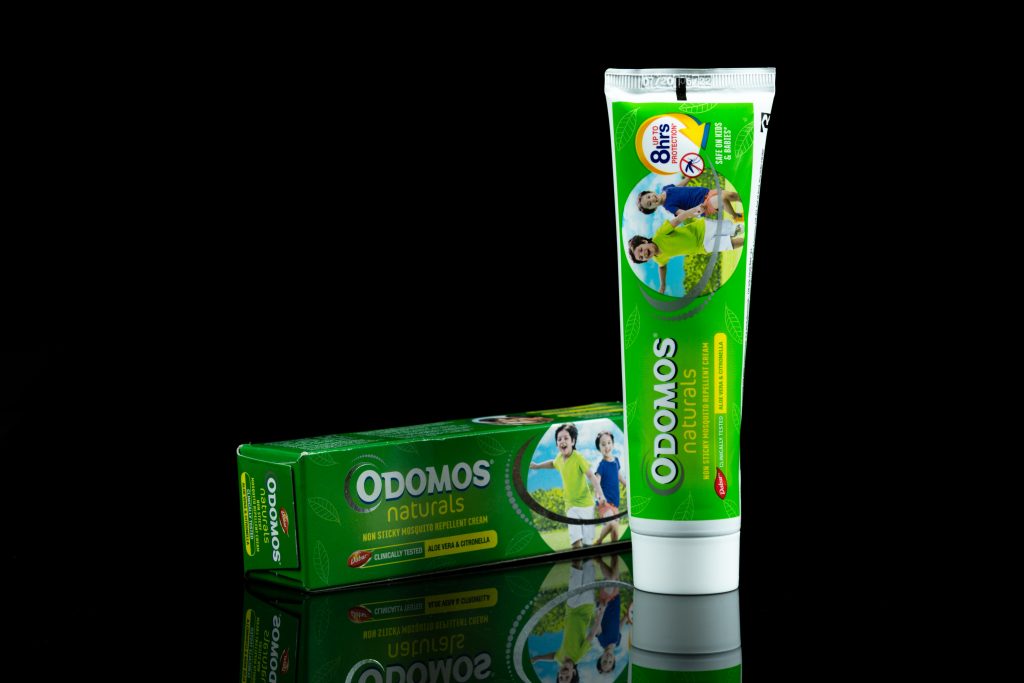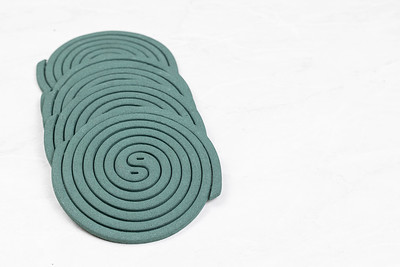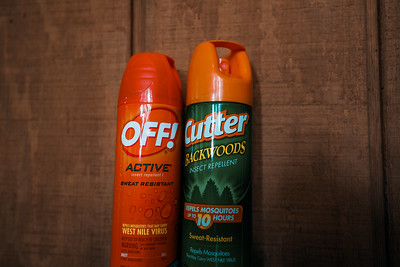Are you tired of soothing your baby from mosquito bites? Choosing a suitable mosquito repellent for your baby can be tricky, so here are some tips to protect your little one and help them play and sleep better.
Protective Clothing

- One of the most effective ways to protect babies from mosquitoes is to minimize the area of exposed skin to protect your child.
- Cover her body as much as possible by dressing your baby in a bodysuit or onesie.
- Make sure your baby’s clothing is loose-fitting since mosquitoes can bite through tight-fitting clothing.
- Try dressing up your baby with light-coloured clothes rather than dark coloured or floral prints as it attracts fewer mosquitoes or insects.
- Protective clothing can be difficult in warm weather. If it gets too warm, keep her in a cool room and don’t make her wear an undershirt.
- If you’re dressing your baby with a two-piece set, make sure her tummy is well covered to protect your baby from mosquitoes.
- Try socks for feet and cotton mittens for her hands while sleeping.
Mosquito repellent creams, gels, roll-on sticks and wipes

- Applying a spray, gel or cream repellent on your baby’s skin is the most effective way to protect your baby from mosquitoes, but it needs to be reapplied to maintain its effectiveness since they last only for a few hours.
- For babies who are younger than four months of age, chemical repellents should not be used.
- Always choose a repellant that is suitable for your baby. For example, don’t apply a thick layer of cream since they let your baby get exposed to more chemicals than required without any use.
- For children younger than three years of age should avoid using products containing essential oil of lemon, eucalyptus or its synthetic form, PMD.
- Always spray repellents in open areas. Spraying them on while in a room with poor ventilation can result in your baby inhaling it. Breathing them can cause respiratory problems in kids.
- Be very careful to avoid spraying in cuts, wounds and irritated skin. Toddlers are energetic little people, and they might have small cuts or bruises that haven’t told you about yet.
- Mosquito repellent bracelets and bands for babies are available in the market. These can be tied to your baby’s wrist to protect them from mosquito bites.
Mosquito net

- Mosquito nets are very effective and among the most commonly used solution — they do not cause any side effects
- They are available in different shapes and sizes for family beds, baby cots, prams, or strollers.
- They are portable and can be carried along with you whenever you want.
- They can be a little challenging to use at times when you are frequently feeding her or changing diapers day or night.
- A mosquito net for your bed will be helpful once you are co-sleeping with your baby or once she has stopped feeding and has started to sleep throughout the night.
Liquid vaporizer
- Liquid vaporizers emit chemicals like pyrethrin and diethyltoluamide (DEET) that are unsafe to inhale, especially for babies under two months of age.
- They can cause or aggravate breathing problems and may also irritate the eyes in induction to allergies.
- It is not safe for Kids exposing to mosquito repellents with more than 30% DEET.
- If you use a vaporizer, make sure that your baby is out of the room.
Coils

- Coils have been in use for ages as mosquito killer, but as you can notice, they emit smoke containing harmful chemicals causing headaches, coughs, sore throats, nausea and dizziness.
- Long term exposure can cause or aggravate allergies, breathing problems and even asthma.
- Coils should be placed out of reach from babies to prevent accidental burns. Always empty plug-in bottles or remove the coils as soon as they are over; since they have bright lights on them, there are more chances for your baby to play with them.
- Some researchers even link them to Lung Cancer, so it is always better to keep them away from kids.
- If you are using coils, make sure to ventilate the room before bringing your baby.
- Using coils alone will not give complete protection as it should be accompanied by other repellents such as full clothing, mosquito nets etc.
Mosquito repellent sprays

- Mosquito repellent sprays and forms release harmful chemicals to the air and are hazardous to babies, especially under two months of age. There are many natural mosquito repellents for babies which can be used after consulting your doctor.
- Repellent with no more than 10% to 30% concentration of DEET is considered to be safe and effective by U.S. Environmental Protection Agency (EPA).
- Mosquito repellent with DEET should not be applied more than once a day, so make sure that you don’t use a single product containing both sunscreen and DEET as sunscreen can be reapplied more than once a day.
- While using, follow all the directions in the label to use the product safely.

